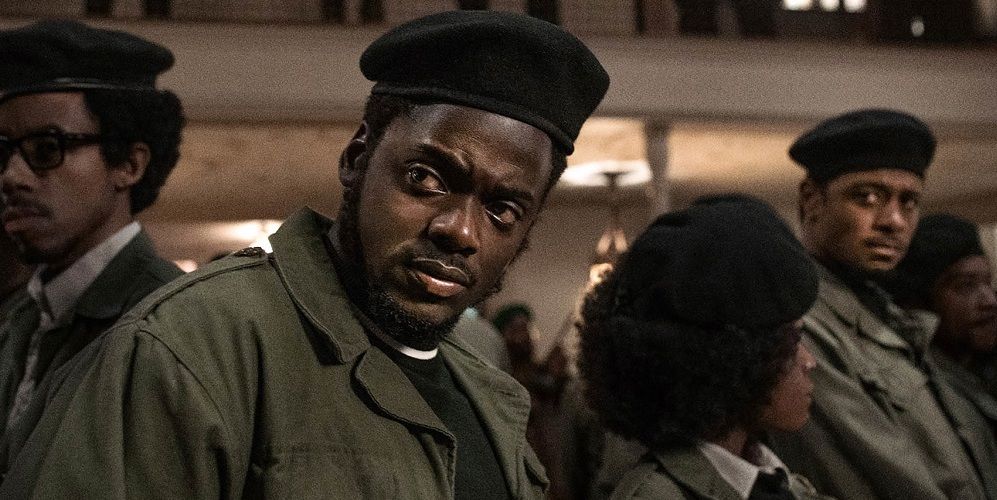
Judas and the Black Messiah
Directed by Shaka King; Winner of Best Supporting Actor (Daniel Kaluuya) and Best Original Song
The Shaka King profile that The New York Times published in conjunction with the release of the director’s biopic about the FBI plot to kill Chicago Black-Panther chairman Fred Hampton is marred by cognitive dissonance. It claims King is an outsider while downplaying his Vassar education and Sundance affiliation. It discusses the hard road to making a movie about a Civil Rights icon while eliding that the film was one of the featured Warner Brothers wide-release titles on HBO Max’s day-and-date pandemic release plan. It tries to critic proof King’s movie (which it has clearly done if Judas’s 96% “fresh” Rotten Tomatoes rating is any indication) despite that the film is one of the weakest Oscar nominees in the ceremony’s history and is even a candidate for worst film of 2020. Judas and the Black Messiah never rises above the level of hagiography, glossing over its references to Maoism and Soviet communism as if the world learned nothing about the repercussions of such ideologies in the intervening decades. As the film repeatedly asserts, Hampton is worthy of idolization because he feeds the youth of Chicago free breakfast. In Marxist filmmaker Vittorio De Sica’s 1948 Italian Neo-Realist classic Bicycle Thieves, a central sequence lambasts the Catholic Church’s similar program as little more than bribery under a thin coat of virtue, suggesting Hollywood leftism’s failure to grasp its medium’s own history. King’s film is meant to appeal to eager white Biden voters who want to broadcast their discerning taste and a Hollywood community that doesn’t realize it’s the enemy of the ideology it glamorizes—proof that nothing has changed since Tom Wolfe coined radical chic except for the reading habits of self-proclaimed intellectuals.
Amid King’s utilitarian direction and Martin Sheen’s embarrassing J. Edgar Hoover makeup, Oscar-winner Daniel Kaluuya’s performance as Fred Hampton and LaKeith Stanfield’s turn as his eventual betrayer Bill O'Neal demonstrate that both actors are far better than the material. Stanfield proved his versatility and screen presence in Stella Meghie’s understated The Photograph, a largely forgotten 2020 Valentine’s Day weekend release that employs the romance genre to comment on the legacy of the Great Migration, African-American upward mobility, generational poverty, and the role of the South in African-American art. Yet, Meghie’s film features a black middle-class couple reconciling their love for each other with their career goals. Even with a female director of color, such films that focus on the African-American middle class do not carry weight with Hollywood or the critical establishment. Neither do films with unremarked-upon African-American leads like Tenet, which faced the cancellation of its Oscar campaign in favor of Judas as punishment for Christopher Nolan defending the integrity of theatrical releases. Only films that mine past traumas or revel in black victimhood are relevant works of art, especially if their filmmakers learned their craft at Vassar and Tisch as King did.
